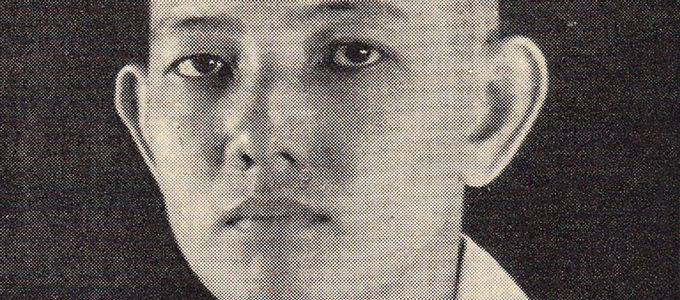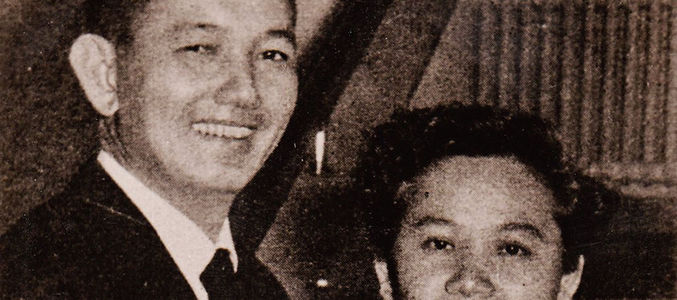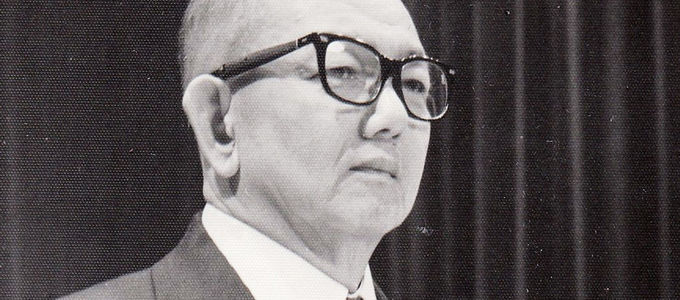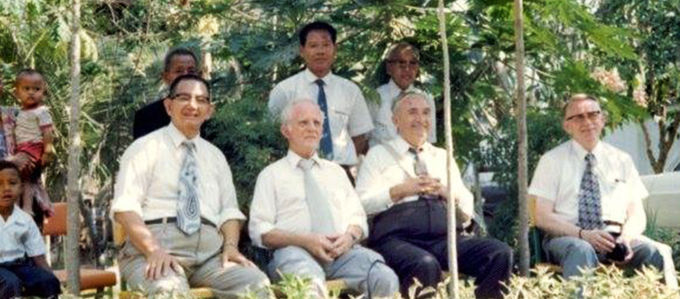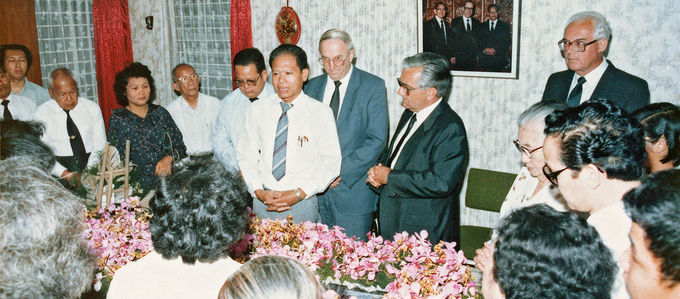
Suddenly in charge and in trouble. This is what Hendra Tansahsami experienced time and again. As District Apostle he merged the two New Apostolic sister churches in Indonesia. Here is a look back in tribute to a man who would have been 100 years old today.
Tan Bian Sing, this was his original name, was born on 19 April 1921 in what was then the Dutch East Indies. The family was seeking a new spiritual home at the time. While his father read the Bible regularly, his mother visited various Christian denominations. And the family’s youngest son belonged to the Salvation Army for about a year. In the end, all of them ended up in the New Apostolic Church.
Deacon, Elder, District Apostle
What happened there in the summer of 1947 was almost like a prologue: Tan Bian Sing was ordained as a Deacon. And already the very next Sunday he stood behind the altar to serve the congregation. The rector, a soldier, had been transferred on short notice.
In 1951, he travelled to Germany as a District Elder and returned home as a District Apostle. When Tan Bian Sing returned home from Europe, he found that only three congregations were left. This was the end of a long story and the beginning of a whole new chapter.
Foreigners in the big cities remained
These congregations went back to Frederik Lodewijk Anthing, a successful missionary with European roots. He initially worked together with missionary societies of the Reformed confession, but converted to the apostolic confession in 1879.
His activity as an Apostle was of short duration. After his sudden death in 1883, many of his followers returned to their Reformed churches. Those who remained were of Chinese or European origin, and mostly living in the big cities.
Locals in the countryside
Meanwhile, an even more successful missionary was at loggerheads with the missionary societies because of his unorthodox methods. A former Muslim, Sadrach Soeropranoto was so sensitive to the predominantly Islamic local culture in spreading the gospel that he had mosque-style churches built.
In 1899 he joined the apostolic faith with many of his followers. He worked as an Apostle until he was 96 years old. After his death, his denomination broke up into several camps; some apostolic, others turned to the Reformed faith. Even the main group—consisting of local people from the countryside—eventually decided to become independent. This had a lot to do with world history.
Striking out on their own
World War Two was raging. The Japanese Army conquered the Dutch East Indies. And in 1943 Indonesia broke free from 350 years of colonial rule. Apostle Gradus Faassen, who led the Anthing branch, was sent to internment camps because he was a Dutch national. In the end, he was forced to flee back home to the Netherlands.
Bishop Raden Markam Martasudarma, who was now leading the Sadrach branch without Apostles, was looking for help in the crisis, but could neither reach the sister church in Indonesia nor the mother church in Europe. He founded his own movement, was elected an Apostle, and later proclaimed Chief Apostle.
A nearly hopeless situation
This was the situation when Tan Bian Sing, he had just turned thirty, took on the District Apostle ministry. What’s more, as a so-called overseas Chinese he was subject to reprisals. This included a decree that forced him to change his name.
With a handful of companions Hendra Tansahsami got down to work and started to learn Javanese in earnest and maintained contact with the Martasudarma group. And, in fact, in 1956 the former Bishop returned with his followers.
This is how the two branches were eventually united under the name Gereja Kerasulan Baru di Indonesia, the New Apostolic Church in Indonesia. By the time District Apostle Tansahsami passed away in July 1985, the church had grown to 120 congregations and 12,000 members. The memorial service on the day of his funeral was based on 2 Corinthians 9: 6: “He who sows sparingly will also reap sparingly, and he who sows bountifully will also reap bountifully.”






